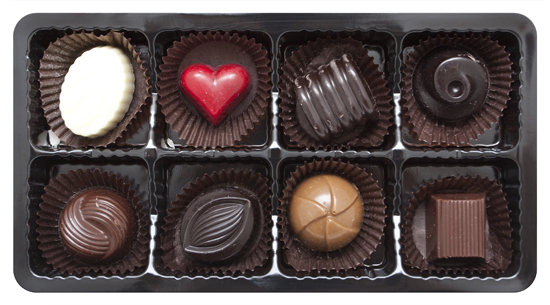Valentine's Day fast is approaching. It's time for romance. This year it's on a Friday. We can all have a long romantic evening.
Why do you love somebody? Why do you feel romantic? Well that's a big question that Helen Fisher and I attack on The Anatomy of Love website. However, now it's time to revel in romance with chocolates, roses, Vermont Teddy Bears, candlelight and thoughtful cards or emails that will make you and your sweetheart feel good. This is a great time to listen to some of those old love songs, too.
Why does Valentines's Day exist? Basically, to make us feel warm-hearted and cozy together. It's a bonding day. It's a quick-and-easy renewal of vows, whether we're in a long-term or short-term relationship. It keeps an important survival system in our brains exercised. Everyone is playing games on the Internet to exercise their brains for memory improvement. Love needs it, too.
Songs are a nice way to exercise the system. They immerse you in memories of that exciting time when you first fell in love. Music surely stimulates the brain's reward/survival system for romance. "You Give Me Fever" (Peggy Lee) is a good love song. She sings, "I light up when you call my name" and gets across the passion. "Natural Woman" (Aretha Franklin) is an empowering love song for both members of a couple, "You make me feel like a natural woman." "Bubbly" (Colbie Caillat) is, well, bubbly, and reminds us of that indescribable feeling of seeing your new romantic partner, a feeling that "starts in my toes" and "starts in my soul." I never forget that it feels so deep because brain regions that make me bond with someone else are at a survival-level -- I try to keep these regions in good shape.
I like to think of dopamine bubbling across a synapse in my brain to keep communication going among the cells. Keeping up communication with my partner is good, too. (Good communication with a partner is one of the 6-25 Relationship Keys listed out there on the web.) Bonding Day. Dopamine Day. Chocolate Day. Love Song Day.
If you're in the Northern hemisphere and in a cold place, the weather encourages cuddling up by the fire, which is good for a couple. Most of you probably already know that oxytocin is called the "cuddle hormone" sometimes. It's a horrifying simplification for the scientists, but it's a useful way to remember that cuddling, touching, hugging all cause physiological brain changes that strengthen our relationships. So does sex.
"Light My Fire" (The Doors), has dramatic music and a call to action! "Try to set the night on fire!" Most people interpret it as a call for sex, but as Raquel Welch said, "The mind can also be an erogenous zone." Even a favorite erogenous zone that enhances romance. Cuddling, sex, love songs all affect complex brain systems of attachment. Does "a physiological change in the brain" sound un-romantic to you? It makes it all the more exciting to a lot of us. But we still love the chocolates and the candlelit dinners, the fireplace and the cards and flowers.
There are as many suggestions out there for romantic Valentine's Day activities as there are media reporters and bloggers, and they are good ideas. Couples have a lot of choices. They will ponder on them. It is a time to think what the other person would like to do. That is important. One of those relationship keys: There are times when you need to put the other person's needs ahead of yours.
Nature designed a powerful system in our brains to keep us together. We are often oblivious to its strength, it is so basic, like thirst. But Valentine's Day exists to exercise this brain system for love and attachment. Light a fire there. Enjoy the flames, especially in your mind's eye.
